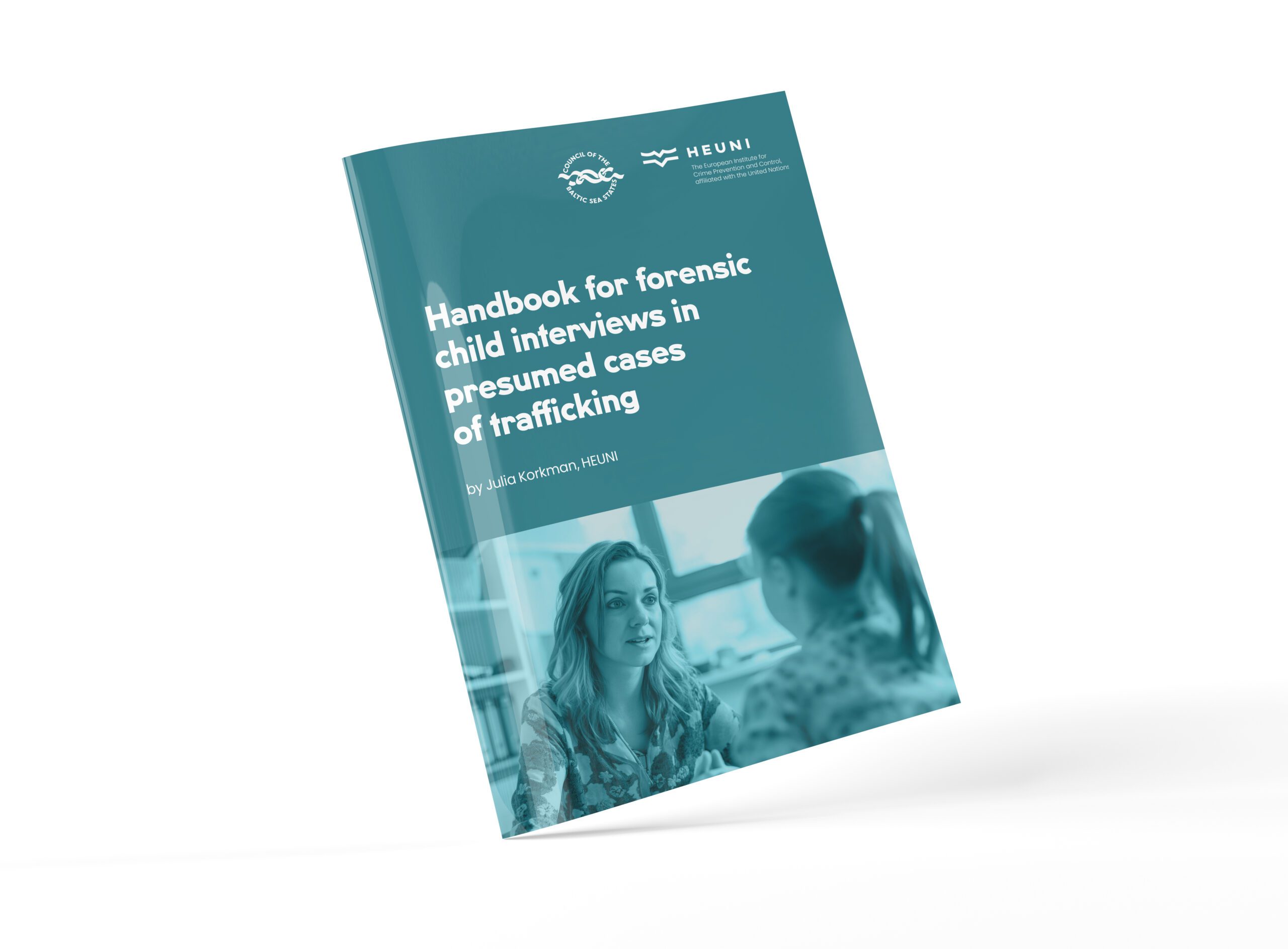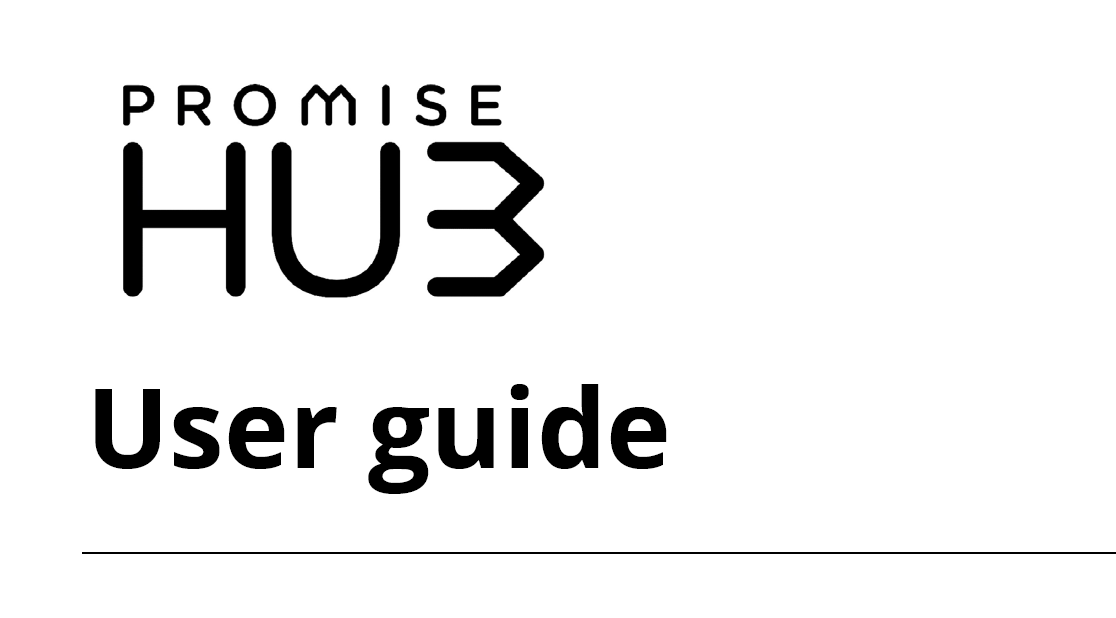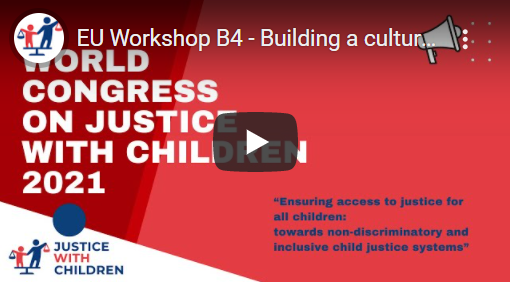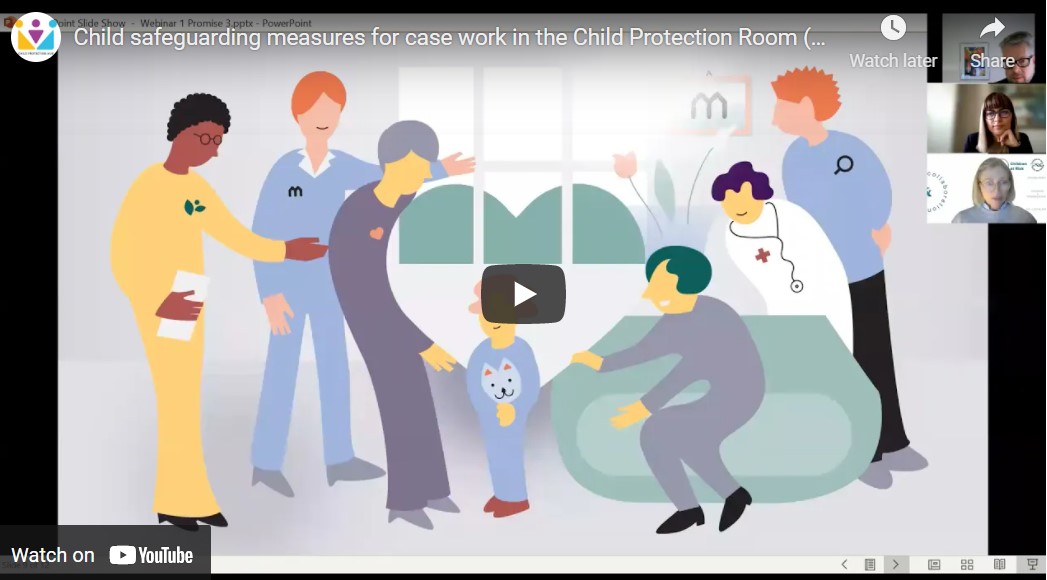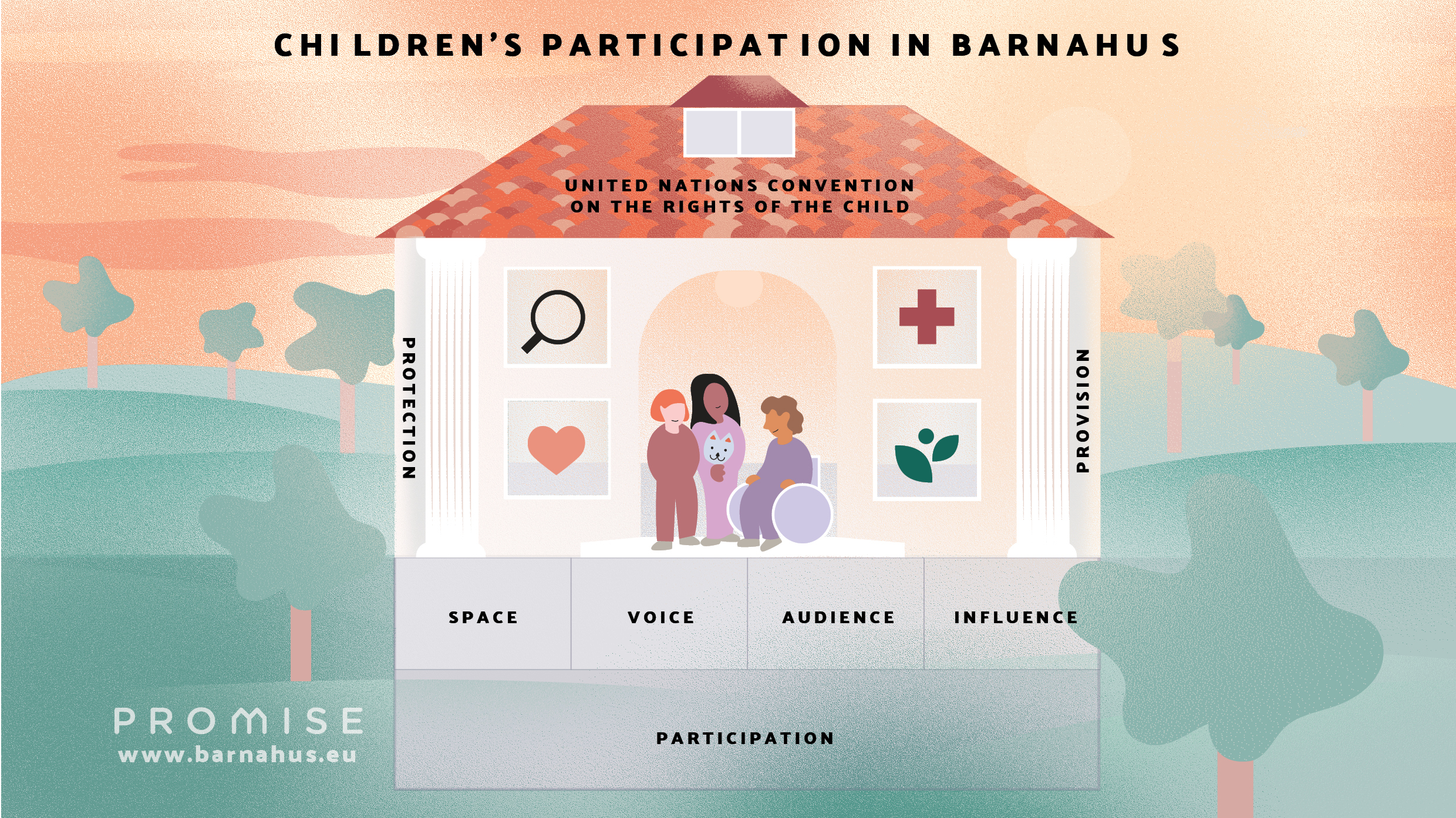Facility Dogs Assisting at Barnahus and similar setups
Facility dogs are in widespread use in the United States, and the practice is slowly spreading within Europe.
Children are naturally drawn to animals, and child-friendly services which use facility dogs report that the comfort they provide often leads to better results for children. From bonding in the lobby to accompanying the child throughout the facility, children are less stressed and have a non-human to tell their story. The evidence gathered is of a high quality, the child has a positive memory from the visit, and the dog is happy to be a companion in exchange for long walks and plenty of treats at nighttime.
Watch this webinar to hear from Courthouse Dogs Foundation founders Ellen O’Neill-Stephens and Celeste Walsen about:
- How courthouse facility dogs help children to tell their stories,
- How to decide if a dog could be a successful addition to your service, and what the process looks like,
- What to consider to make sure both canine and human staff members are comfortable and happy.
Summary
In this webinar, Ellen O’Neill-Stephens and Celeste Walsen, Courthouse Dogs Foundation founders, presents how courthouse facility dogs help children to tell their stories, when a dog could be a successful addition to your service, and what to consider to make sure both canine and human staff members are comfortable and happy. The presence of the dogs helps to calm children from the moment they enter the facility. When children have to be separated from their parents for interviews, the dog’s presence can be a significant comfort. The dog’s presence can make an otherwise intimidating place feel more friendly and less overwhelming. The dogs, trained to engage with children through play and other activities, help children relax, which is essential in a high-stress environment.
Often, it’s difficult for children to separate from their caregivers to discuss traumatic events with an interviewer. Here, the dogs act as a comforting presence. Children are given the option to have the dog accompany them into the interview room. The child can lead the dog in with a secondary leash, providing a sense of companionship and control. In the context of the interview itself, the dogs provide physical comfort and a non-judgmental outlet for the child’s emotions and disclosures. Children often find it easier to recount the traumatic events to the dog rather than to the interviewer directly. This method has proven successful in numerous cases.
The dogs used in these programs are designated as “facility dogs,” having undergone the same amount of training as service dogs, but they serve many people in a facility as opposed to a single individual. These dogs facilitate the work of professionals in fields such as special education, psychology, and in the legal world, helping forensic interviewers and victim advocates do a better job of keeping a child calm while they’re waiting to testify. It’s important to consider potential legal issues when involving facility dogs and essential to handle the inclusion of these dogs in a sensitive and careful manner.
More about Facility Dogs at Child Advocacy Centers (CAC)
Even when accompanied by a non-offending parent or guardian, the most child-friendly service is still scary for a child to enter.
Fortunately, children seem to be naturally drawn to animals – especially dogs. Specially trained dogs have the biggest impact when they can be included in the investigative phase of crimes against children, which in the United States typically begins at a Child Advocacy Center (these Centers have the same multidisciplinary team approach as the Barnahus model in Europe).
After determining if the child would like to meet the Center’s facility dog, the bonding of the child and dog can begin in the lobby. The facility dog handlers are typically forensic interviewers, victim advocates or therapists. Typically, this is an opportunity for the handler and child to begin to establish rapport with one another.
A little playtime between the child and dog is not only relaxing for the child, but when children learn that the dog can accompany them during a forensic interview, a medical exam, and visits with a therapist, then the children and caregivers are much more likely to engage with this process.



Facility Dogs in Forensic Interviews
To use an American expression, this is where you get “the biggest bang for your buck.” Children often clam up when asked to describe precise details of crimes they have witnessed or their own victimization. It is well-accepted science that the presence of a calm dog can lower cortisol levels and increase oxytocin levels in humans. When a facility dog is cuddled up on a couch next to the child, having the child pet the dog can reduce the child’s stress levels. Children can also avoid looking at how the interviewer is non-verbally responding to their story, by simply telling the dog what happened. And don’t worry about the dog distracting the child – they are trained to just lie down and not to engage with the child while in the interview room.
In one case, when an 11-year-old boy was introduced to the young woman who was going to interview him, he looked over at facility dog Ariah lying on the couch and said he would only tell Ariah what happened. The interviewer then left the room to observe this conversation between her dog and the boy through the one-way mirror. The boy crawled over to Ariah, lifted up her ear, apologized for telling her these disgusting things, and then told her the details of what happened. All of this was video recorded.
As you can see, it is rewarding to include a facility dog in this process in supporting the child’s access to justice and the child’s right to be heard: More information about what happened so that the police can continue with their investigation and do a better job questioning a suspect knowing these additional facts The prosecutor secures more evidence for the filing of charges
A defense attorney can see that the child can articulate what happened, which might result in a guilty plea instead of a trial. The child has a more positive memory of the visit to your center and can get on with his life. And you’ve saved time, energy and money and your dog will be happy with a long walk afterwards and a biscuit at nighttime.
– Ellen O’Neill-Stephens JD, Founder, Courthouse Dogs Foundation

Meet Daze
Meet Daze – reporting for duty as the facility dog for the Children’s Advocacy Center (CAC) of Pierce County. Since her adoption date on May 13, 2016, Daze has sat with 378 children to give them reprieve from their traumatic experiences. Learn more…
About the Courthouse Dogs Foundation
In 2008, Courthouse Dogs Foundation was created by Ellen O’Neill-Stephens, a Seattle senior deputy prosecuting attorney, and Celeste Walsen, a veterinarian, to reduce the emotional trauma often suffered by vulnerable people during the investigation and prosecution of crimes. Children benefit the most when professionally-trained facility dogs, that have graduated from assistance dog organizations that are members of Assistance Dogs International, provide support to them from the moment they enter a child advocacy center through testifying in court.
These dogs are specially chosen by the assistance dog organization for this placement and are extremely calm, snuggly and very comfortable engaging with strangers in a high stress environment. They are handled by professionals working in the legal field. The staff member is taught to handle the dog by the assistance dog organization and the dog works and lives with the handler. These teams typically work together for about eight years and dog and handler develop a close bond with one another.
See also:
Manual for Facility Dogs at Child Advocacy Centers and in Legal Proceedings
The PROMISE Webinar Series is co-organised with Terre des Hommes, a partner of this project, as part of the ChildHub’s child protection webinar series.



